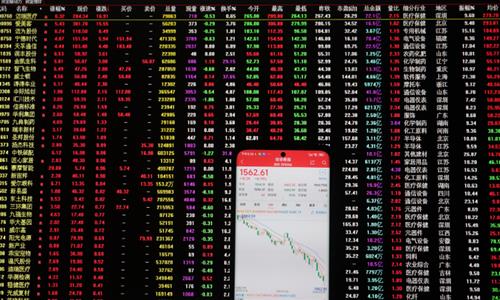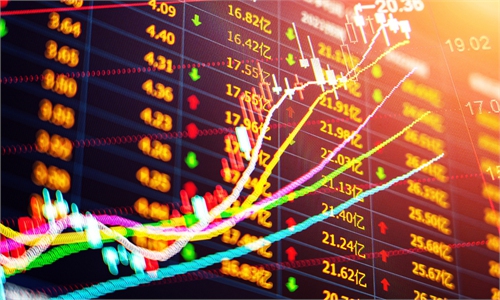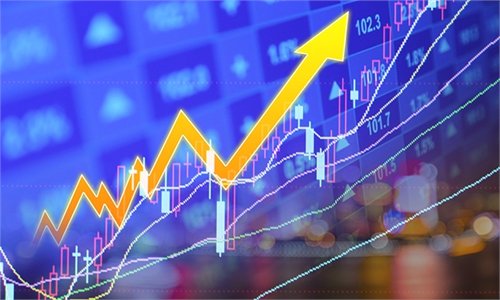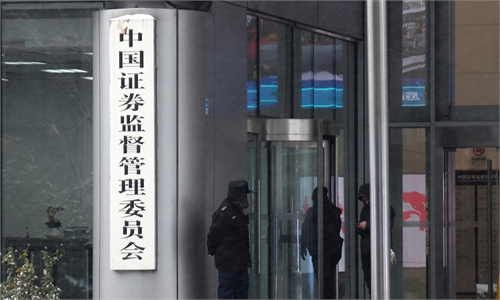China’s major stock exchanges ramp up oversight of quantitative trading to ensure normal market order
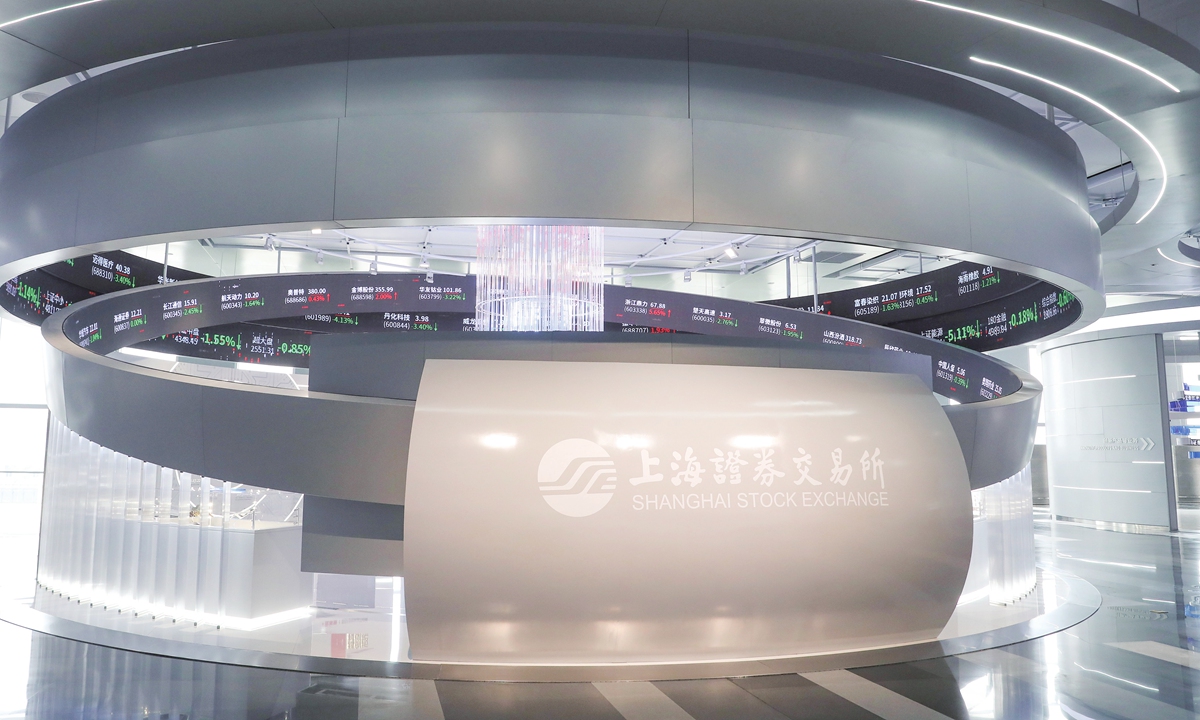
Inside the Shanghai Stock Exchange Photos: VCG
Two major stock exchanges in China said a reporting system has been set up for quantitative trading in separate statements released late Tuesday, adding that they will continue to strengthen the monitoring and analysis of quantitative trading, especially high-frequency trading, and promptly evaluate and improve the reporting system.
The aim of implementing policies to strengthen supervision of quantitative hedge funds was not to suspend quantitative trading, rather it was designed to improve transaction oversight and ensure market order, the relevant person from the market supervision department stressed.
China's stock market continued to rally, as authorities clamped down on trading by quant funds, the Hang Seng China Enterprises Index, which tracks mainland firms listed in Hong Kong, gained as much as 4 percent to its highest level in seven weeks, inching closer to erasing all its losses for the year, according to a Bloomberg report on Wednesday.
Tuesday also saw Shenzhen and Shanghai bourses imposed trading suspension measures on Ningbo Lingjun Investment Management Partnership Enterprise, and initiated a public review procedure. The trading ban is the latest move by the regulators to convey a strong signal of regulating market order to maintain a fair market climate, analysts said.
This came after the Zhejiang-based equity fund company dumped 2.57 billion yuan ($360 million) in shares within a minute on Monday, disrupting normal trading order, the Shenzhen exchange said in a statement.
The firm said in a statement posted to its WeChat account that it sincerely apologizes for the mistake, and will resolutely comply with the bourses' restrictions and learn necessary lesson.
The investment accounts under its management bought a net 187 million yuan in shares on Monday, which has had negative impact on the stock index, according to the paper.cn.
The recent moves taken by market regulators focus on oversight of high-frequency trading, an extremely fast, algorithm-driven and computer-based form of quantitative trading, which has been perceived as a threat to the stability of capital markets, an official from the China Securities Regulatory Commission( CSRC) was quoted by China Securities Daily.
Judging from international experience, overseas markets generally implement stricter supervision on quantitative trading, especially high-frequency trading, so as to prevent negative impacts on normal market trading order, the official said.
"China has more than 200 million individual investors, and to effectively prevent and defuse financial risks under specific market environment, it's necessary to promote its standardized development and make it more investor-oriented," the official added.
The country's top securities regulator has set out priorities for its work this year. "China will work to improve regulatory rules on IPO pricing and quantitative trading, among others, and prioritize protecting the legitimate interests of investors," said the CSRC at a two-day work conference in January.
Through continuous supervision of financial institutions and markets, potential risks can be detected and resolved in a timely manner, preventing the likelihood of a financial crises, Wang Peng, an associate researcher at the Beijing Academy of Social Sciences, told the Global Times in a recent interview.
"The supervising measures that followed will be launched and improved after the extensive interactions with various investors. Next, we will promote the standardized and healthy development of quantitative trading, and maintain the stable operation of the market," said the CSRC official.
In addition, the authorities said quantitative trading made by north-bound investors via the mainland to Hong Kong stock connect system will also be included in the reporting mechanism, the official noted.
Global Times
